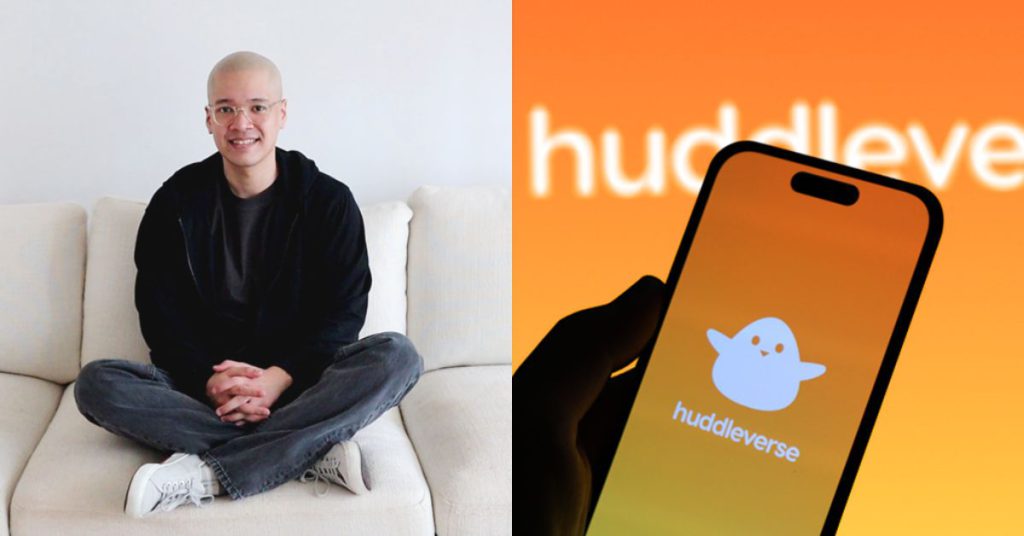Some founders are entrepreneurial from a young age, while others never set out with the intention of starting a company.
For Viaano Spruyt, it’s the case of the latter.
“To be very honest, all I was trying to do was solve a problem I had personally experienced—a problem deeply personal to me, yet so commonly experienced in the world,” he explained to Vulcan Post.
And his solution would turn out to be something called Huddleverse.
Solving a personal problem
“If I were to trace back to what started it all, it would have been that singular day I sought help for the first time as a teenager,” Viaano recalled.
Throughout his teenage years, he struggled with severe anxiety, worsened by a neurological condition called essential tremor.
At 18, he sought help from a doctor. However, at the clinic, the doctor only gave him five minutes to speak, invalidated his experience, and did not provide any medication or referrals because his parents weren’t there with him.
“I still remember leaving the clinic feeling really alone and even more isolated than before.”
But that experience was when his life’s passion took form. Not long after, he started working on Huddleverse to ensure that no one else in the world who has no one to turn to with their mental health challenges would feel the same helplessness he did.
So, what actually is Huddleverse?
Huddleverse is a social app designed to improve the mental wellbeing of people.
Through the app, users can connect with one another authentically and create supportive networks in their lives. Here, they are empowered to be their true selves and share their struggles without feeling ashamed.
Specifically, users can share text messages, journals, images, and videos in posts, participate in lengthy discussions through threads, and like or thank other users’ content.
Huddleverse released its native iOS app in May 2023, and plans to release a native Android version soon.
Viaano proudly shared that almost 50,000 people have signed up for their Android waiting list.
“Considering that Android accounts for nearly 81% of the global smartphone market, we anticipate a huge spike in users once we launch the Android version of Huddleverse later this year,” he added.
Currently, the iOS app has around 39,000 Monthly Active Users (MAUs), and this number is consistently growing each month.
Viaano revealed that over half of the users are actually based in North America, closely followed by Asia, with a significant user base in Singapore. The rest are spread out across Europe, Oceania, and other English-speaking countries.
Monetising the business
As of now, Huddleverse is still exploring various avenues for monetisation, wanting to find ones that align with their mission and values. This may involve premium features or subscriptions.
Viaano shared that Huddleverse has been internally funded since its inception, having never taken any loans or incurred any debt.
While most details about the company’s shareholders are kept under wraps, one notable investor is Joseph Schooling, Singapore’s first and only Olympic gold medalist. He reportedly joined Huddleverse’s pre-seed round held last year.
On the topic of funding, the founder said they’ve never actively sought external investment, but remain open to strategic partnerships.
Catering to a curated community
Basically, Huddleverse is a social media platform like Instagram, except with a mental health focus. So, why is there a need for a platform like Huddleverse, when other social media sites may also be able to facilitate such engagements?
Viaano believes that there’s a gap in the market for such an app because mental health experiences are still difficult to share due to stigma, shame, lack of accessibility to mental health professionals.
The founder also believes that existing social platforms are not built by nature or with the initial intention to support mental health needs.
He pointed out that the Huddleverse team includes mental health professionals as advisors, including qualified psychiatrists, psychologists, and counsellors.
To ensure safety and security, the app contains algorithms that proactively identify potentially harmful content. There are built-in reporting mechanisms that allow users to flag inappropriate or harmful content too.
There’s also something called trigger points within the system that flag content requiring manual review by Huddleverse’s moderation team.
But in any case, “alternative” social media apps seem to have a short lifespan in the limelight (think Clubhouse, Bondee, or BeReal). Can Huddleverse really stand out against the well-established social media powerhouses while standing against the test of time?
To that, Viaano affirmed that Huddleverse was never intended to be a flash in the pan. “Addressing mental health is not a short-term endeavour; it’s a continuous journey. There is no quick fix or one-size-fits-all solution when it comes to mental health challenges.”
He elaborated, “The key lesson, akin to the classic Tortoise and Hare fable, is that consistency, perseverance, and determination often outweigh speed or initial popularity.”
While trends may come and go, Huddleverse believes that by maintaining a steady, user-focused approach, their platform can become a sustainable cornerstone in the mental health support landscape.
Plus, he pointed out that newer apps like Telegram have gained huge traction against dominant players like WhatsApp.
“Similarly, the internet is brimming with forums and topical sites, but why has Reddit emerged as a powerhouse, attracting millions of users worldwide? The answer lies in its diverse and vibrant community, coupled with innovative features that foster engagement and discussion,” he concluded.
That’s why Huddleverse aims to offer something distinct from conventional social media sites. Instead of replicating what already exists, they want to create a platform tailored to the unique needs of their well-defined user group.
“I am not here to create the next Facebook,” Viaano stated. “I am here to create Huddleverse.”
Featured Image Credit: Huddleverse
